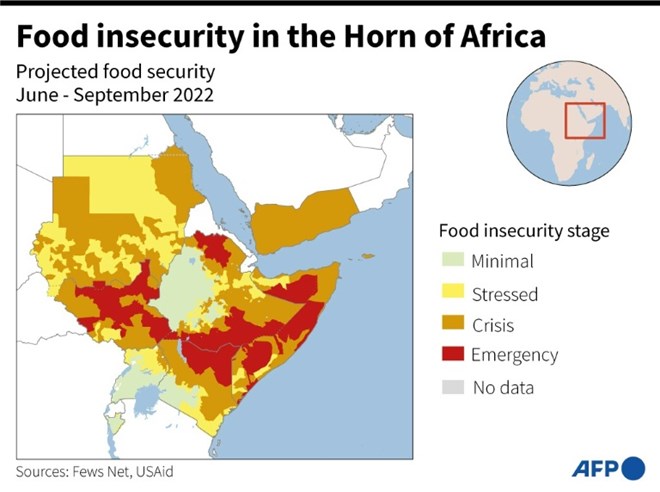The international community is being urged by the Intergovernmental Authority on Development (IGAD) to allocate more funds to battling the drought wreaking havoc in the Horn of Africa.
According to Dr. Workneh Gebeyehu, executive secretary of IGAD, the region has encountered exceptional difficulties over the past two years as a result of a chronic and protracted drought that has been characterised by five consecutive seasons with below-average rainfall.
Food insecurity has worsened as a result of the situation’s impact on agricultural and livestock production.
According to Dr. Gebeyehu, 70% of the 47 million people who experience severe food insecurity reside in Somalia, Kenya, and Ethiopia.
Dr. Gebeyehu added, “We solemnly appeal to the international community to assist us in preventing a major humanitarian tragedy by allocating the necessary resources to save lives and livelihoods in the short-term, and continuing investing in resilience building in the medium and long-term.
He said that recent significant rainfall may not accurately represent the season’s performance as a whole.
According to Gebeyehu, the extreme drought has caused significant water and pasture shortages, forced one million people to relocate, and killed over 10 million animals and other species.
Dr. Gebeyehu cautions that there is a serious risk of starvation in several pastoral and agropastoral regions of Ethiopia, Kenya, and Somalia.
According to him, Kenya needs US$378 million to feed, water, and immunize the impacted counties through October 2023, while Ethiopia, Kenya’s neighbor, needs US$710 million to cover crucial sectoral needs over the next four months.
Dr. Gebeyehu continues by stating that Somalia needs US$1.6 billion to help the drought-affected areas and internally displaced people by providing them with food and non-food goods (IDPs).
He remarked, “We must try to prevent future disasters from having such devastating repercussions as our recovery would require resources and time.”

